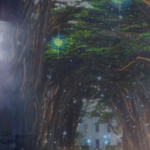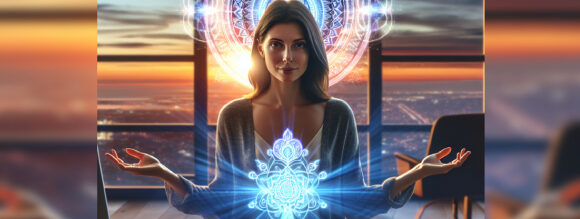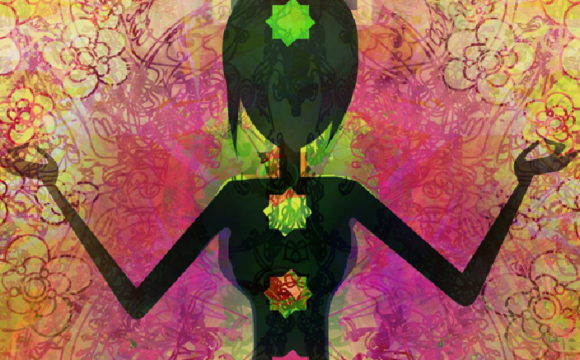Let’s talk about the secret of everlasting life. Sounds intriguing, doesn’t it? It’s one of those age-old questions humans have been pondering for centuries: Is it even possible? Can we live forever, not just in body but in spirit? Whether you’re curious about immortality in the physical sense or the idea of your soul living on after death, the concept of everlasting life stirs up a lot of emotions—hope, curiosity, maybe even a bit of fear. After all, who hasn’t wished at some point to extend life, avoid death, or find meaning beyond the grave?
The good news is, this conversation is a lot more spiritual than scientific. We’re not going to talk about crazy experiments or elixirs of youth here. Instead, we’re diving into something deeper—the idea that everlasting life could be more about the spirit than the physical body. And honestly, when we get into that realm, things get really interesting. So, grab a cup of coffee or tea, and let’s explore this together.
What Does Everlasting Life Even Mean?
Let’s start with a basic but essential question: *What do we mean by everlasting life?* Are we talking about the kind of immortality you see in movies, where someone just doesn’t age, like a vampire who avoids mirrors and gets all broody about love? Or is it something more subtle, like your spirit continuing on after death?
Most spiritual perspectives lean toward the latter. Everlasting life is less about keeping this physical body around forever (because, let’s be honest, bodies get tired!) and more about the idea that who we truly are—our essence, our soul—lives on. In many traditions, this life is seen as just one chapter in a much longer, more expansive existence.
Think about it like this: Imagine your life as a book. Right now, you’re somewhere in the middle chapters, living your story. But when you reach the last page of this life, the book doesn’t just end. Instead, it continues—perhaps in another form, in another realm, or even in another body if you believe in reincarnation. Everlasting life could be that infinite continuation, the story that never stops unfolding. Doesn’t that sound more fulfilling than just hitting “pause” on your current self forever?
The Search for Immortality (Spoiler: We Might Already Have It)
Throughout history, humans have searched for the secret to living forever. From ancient alchemists looking for the philosopher’s stone to modern-day scientists exploring anti-aging technology, we’ve always wanted to cheat death. But here’s something to consider: What if we already have the key to everlasting life, and we’re just looking in the wrong place?
Many spiritual teachings suggest that everlasting life has more to do with your soul than your body. The body, in this view, is like a temporary home—sort of like renting an apartment while you’re traveling. Eventually, you have to move out, but that doesn’t mean you stop existing. You just move on to the next place, the next experience. Your spirit, your essence, continues.
Ever heard of the phrase “You can’t take it with you”? It’s usually said about material possessions, but I think it applies to our physical bodies, too. The things that make us *us*—our love, our memories, our spirit—those aren’t tied to this skin and bones. So maybe, just maybe, we’ve been immortal all along. We’ve just been thinking about it in the wrong way.
Different Paths to Everlasting Life
If you ask ten different people what everlasting life looks like, you’ll probably get ten different answers. And that’s great! Because the beauty of this idea is that it’s so personal. Each culture, religion, and spiritual belief system offers a unique take on what happens after we die and how we continue on.
In Christianity, for example, everlasting life is often described as being in the presence of God—eternally loved, peaceful, and free from suffering. It’s not so much about the mechanics of *how* you live forever, but about the quality of that life, the joy of being reunited with something greater than yourself.
Then, you’ve got traditions like Buddhism and Hinduism that talk about reincarnation. The idea here is that the soul goes through many lifetimes, learning and evolving with each experience. So, in a sense, you do live forever—but not in the same form. You might come back as a different person, an animal, or even something more abstract. Your soul is on a journey, gathering wisdom and insight as it moves from one life to the next.
Doesn’t that offer a cool perspective? It’s like you get to keep playing the game of life, but each time, you start with a new character. Sure, the idea of coming back as a squirrel or a butterfly might seem a bit odd, but it’s kind of comforting to think that there’s no true “end”—just a continuation of learning, growth, and existence.
But What If We Don’t Know?
Now, here’s where we need to pause and admit something: we don’t know for sure. I mean, no one has sent us a postcard from the afterlife. The afterlife, reincarnation, spiritual realms—these are all ideas rooted in faith, belief, and personal experience. And that’s okay. It’s perfectly fine to not have all the answers. In fact, embracing the unknown might be one of the best parts of this whole discussion.
Why? Because uncertainty invites curiosity. When we don’t know for sure, we start asking bigger questions. We start exploring different possibilities and reflecting on what resonates with us personally. It also keeps us humble. Life is mysterious, and there’s something kind of magical about not having all the details laid out for us.
So, while I can’t sit here and say, “Yep, everlasting life looks exactly like this,” I can encourage you to think about what feels right for you. Is it comforting to believe in a heaven? Does the idea of reincarnation make you feel more connected to a greater cycle? Or maybe you’re someone who thinks everlasting life is about the impact you leave behind—the memories, the love, and the energy you’ve shared with others that ripple out long after you’re gone.
Everlasting Life in the Here and Now
Let’s switch gears for a moment. Everlasting life doesn’t have to be something that only happens after we die. In fact, a lot of spiritual teachings suggest that everlasting life starts right here, right now. It’s about the way you live, the way you connect with others, and the energy you put out into the world.
Think about it: Everlasting life could be the love you give to others that sticks with them forever. It’s the wisdom you share, the kindness you show, or even the art you create that continues to inspire long after you’re gone. In a way, we all have the potential to live forever—not by staying physically present but by leaving an impact that echoes through time.
This makes me think of people like Martin Luther King Jr. or Mother Teresa. They’ve been gone for years, but their words, actions, and love for humanity live on. They’re still very much alive in the collective memory of the world. And guess what? You don’t have to be a famous figure to create this kind of everlasting life. We do it every day, in small ways, through the connections we make and the love we share.
Final Thoughts
So, what’s the secret to everlasting life? Well, maybe it’s not a secret after all. Maybe it’s something we already carry within us—our spirit, our love, our impact on the world around us. Everlasting life might not be about defying death but about understanding that life, in some form, continues on. It could be in the next realm, the next lifetime, or even in the hearts of those we leave behind.
While we don’t have all the answers, isn’t it kind of freeing to explore the possibilities? To know that there’s more to our existence than what meets the eye? Whether you believe in the soul’s eternal journey, the possibility of reincarnation, or the idea of living on through love and memory, the concept of everlasting life is full of hope and mystery.
And honestly, isn’t that the best part?








